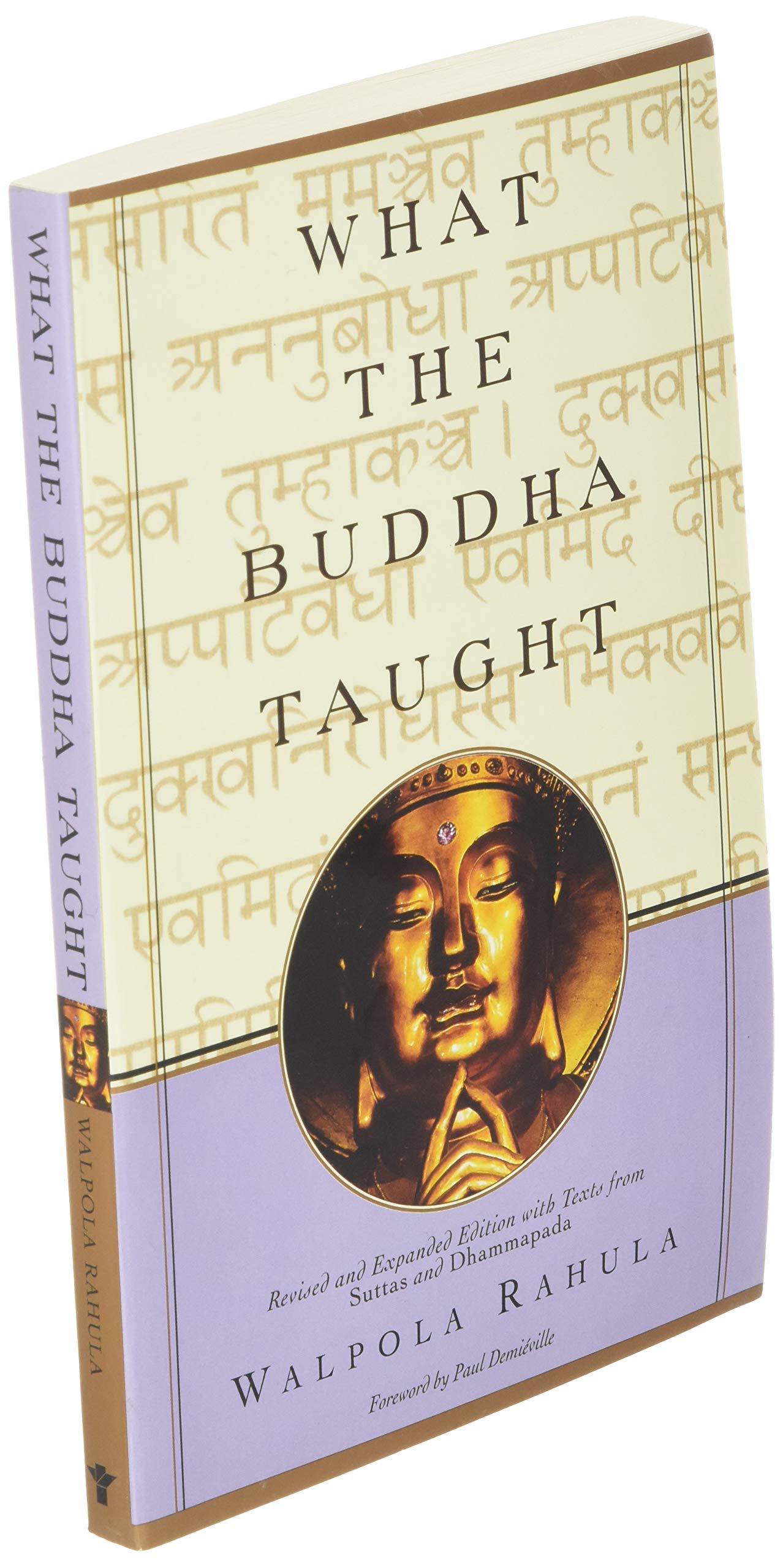What the Buddha Taught

For some reason, Buddhism had always drawn me to it. I went to a yoga class at the Theosophical Society in Melbourne around early 1996 and afterwards wandered into their fascinating bookshop. I think I might have been looking at a large number of books on Buddhism and was staring at them with choice paralysis. The attendant, a youngish man, came over and asked if I was looking for something in particular. I asked him if he knew which of the books on Buddhism was closest to what the Buddha actually said, rather than interpretations of his words by others. He pulled out a copy of this book and handed it to me.
I have since read it a couple of times and enjoyed it immensely, have beckoned my partners to read it (with mixed success), given it as a gift, and recommended it many times. I even discussed it with a monk from Sri Lanka who called it "a handbook of Buddhism". If you are interested in the Buddha, and philosophical wisdom rather than religion, I know of no better book than What the Buddha Taught.
Like any book of it's time it is not perfect, the Buddha bade us be wary of women, when indeed it always seemed to me women had more to fear from men. One should also remember that we know of nothing written about the life of the Buddha for hundreds of years after his death. In a society of oral tradition, where learning was passed by word of mouth, large tracts were memorised as a rite of priestly passage. We would expect some changes and errors in transmission but that the stories and intent would remain generally intact. More worrying would be the changes which were deliberate and politically expedient.
Buddhism too has branched into many societies, and his words and the interpretation of them have branched from the Pali canon generally agreed upon as the core teachings. On the topic of vegetarianism, in some texts he is very clear that flesh should never be eaten, in others he says it can be eaten if it wasn't specifically killed to feed you. For thousands of years, many have been shamelessly using this latter interpretation to justify purchasing animals slaughtered, saying they are killed for anyone with money rather than a particular person or family.
Therefore take the Buddha's advice, that you should not follow his words blindly, but test them for yourself. Buddhism is the best example of the solace of religion, a form of psychology in an age before it existed. Many of the things it says have not been surpassed even today.
Read, think, deeply. The journey to enlightenment, whatever that is, starts with a single step. This may be the one for you.
Find this book
Search for a second hand copy of What the Buddha Taught on World of Books